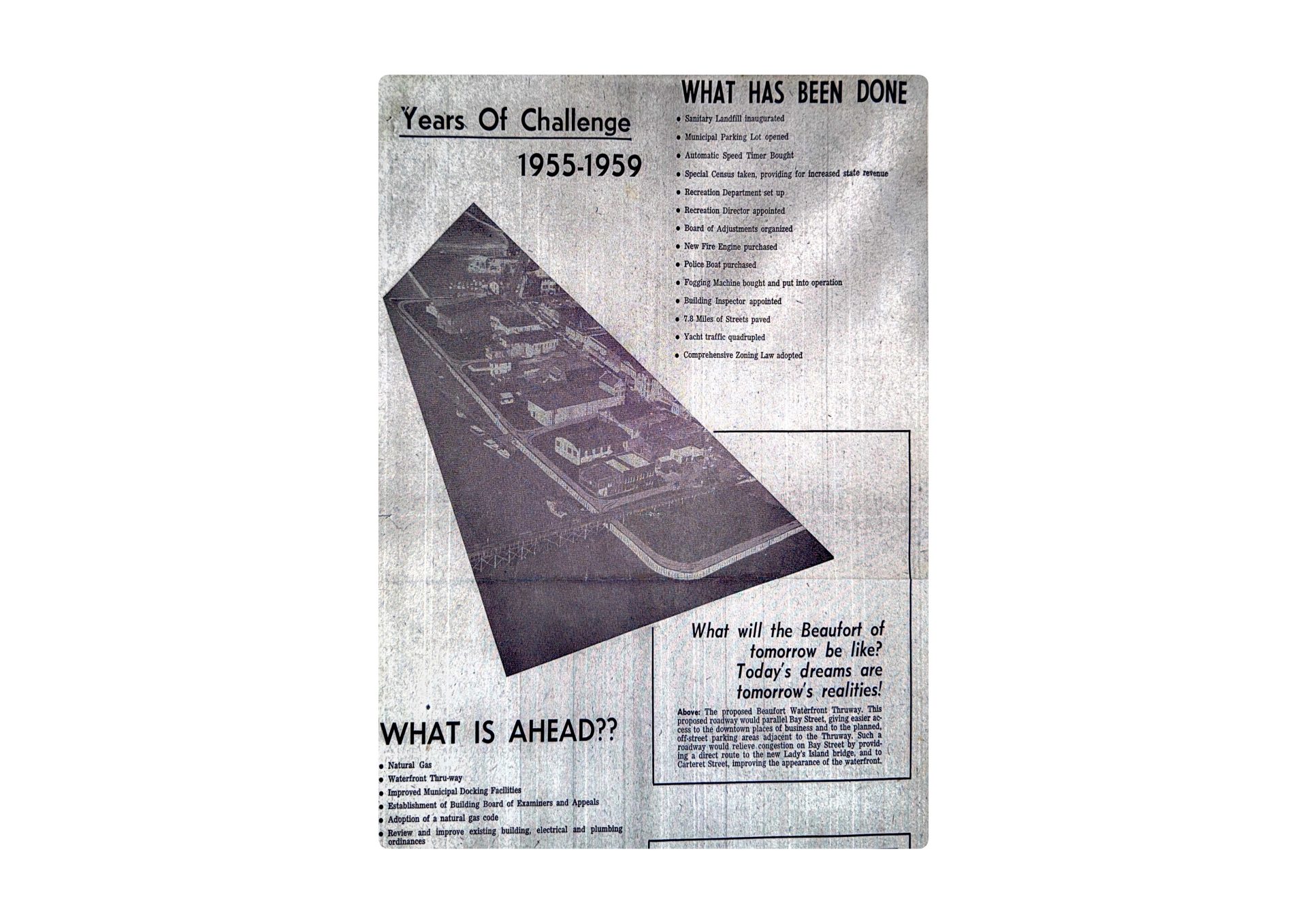By Bill Rauch
Retailing behemoths like Walmart, Nestle, Coca-Cola and Proctor & Gamble have all recently indicated to their shareholders that prices on the products they sell will be rising because of the escalating U.S.-China trade war.
Less publicized, however, is how taxpayers will soon be feeling the pinch of rising trade war-sensitive costs to local governments, too.
The trade war is pushing up government recycling costs in some counties, including Beaufort County, but some other coastal counties say they are so far avoiding the escalating costs. The effects of Hurricane Florence are further complicating the picture, mostly by increasing the dampness in the materials that are being gathered.
The difference is how the recycling publics in Beaufort, Charleston, Georgetown and Horry counties have been trained, how the materials are gathered in each county, the rigor that is applied to the sorting process at the Materials Recovery Facilities (MRFs) that serve each county, and how and to whom the MRFs sell the recycled materials.
Here’s the story.
Charleston County discontinued use of its MRF in 2016 and is in the process of building a new one. In the meantime Charleston’s recycling is being trucked 100 miles to the Horry County Solid Waste Authority’s (HCSWA’s) MRF in Conway. There it is sorted alongside Horry County’s recycling before being sold by the Authority.
The Authority’s Director of Operations, Mike Bessant, says the prices they are getting for their recyclables are holding up, especially since they put on “a few more people” to work as sorters to further ensure the cleanliness of the recyclables — paper, cardboard, unlined beverage cans and clear plastics — they auction off monthly. Both counties’ recycling is a mixture of materials collected at curbside, materials collected from bins at convenience centers, and cardboard boxes collected from retailers.
But the recycling in Beaufort County is collected almost entirely at curbsides by WastePro, a hauler who takes the recyclable material to one of several nearby MRFs that are under contract to Waste Management. Once those materials are sorted and baled they are sold by Waste Management, which is experiencing considerable difficulties auctioning off its baled recyclables.
“Any material coming from a residential program is becoming virtually impossible to sell,” Waste Management’s chief corporate spokesperson, Susan Robinson, said last week. “We’re seeing that the average resale value of a co-mingled ton of recyclable material is less than half now what it was in 2017. Bills will be going up because the overall cost of recycling is going up.”
In Georgetown County the situation is similar to Beaufort’s.
“Recycling revenue is going down due to the challenges presented by the global market,” Michelle LaRocco, Georgetown County’s Environmental Services Division Manager said last week, “and the effect of that will soon be felt at the ‘household fee’ line on tax bills.”
Why are some programs hurting while others seem more resistant to the hurt?
In 2017 Waste Management sold 33 percent of its recyclable material to China. But at the beginning of this year, as the trade war heated up, China cracked down.
The new year — and the trade war — began with the implementation of China’s “National Sword Initiative” that sought to eliminate “unnecessary moisture” in recyclable materials, especially paper products, because of the risk of their “bringing bacteria and fungus” into the country. As part of the program, Chinese Customs began, for example, x-raying scrap paper bundles and turning around bundles that were found to contain too much moisture.
Then in March — further tightening the screws — China began requiring under a second program called “Blue Sky” that the recyclable materials it was receiving adhere to a heightened “contamination standard.” Under the Blue Sky criteria “contaminants,” which might be things like pizza grease on a pizza box, or a styrofoam cup, or a slice of a garden hose, or a single-use plastic bag, could not exceed five-tenths of a percent of the total load. That was a tripling of the standard from last year’s 1.5 percent, and recycling professionals say there are few programs that can meet the new standard.
The one-two punch was severe and the portion of their recyclables Waste Management was selling to Chinese mills fell, according to the company, in the first half of 2018 from 33 percent to 3 percent.
Then in mid-August the 25 percent tariff imposed by both the U.S. and China on imported goods — including plastic, paper, metal recyclables, machinery, steel and heavy equipment — not only effectively closed the Chinese market to U.S. recyclables, but the tit-for-tat moves made the cost of running a domestic MRF rise, too.
“The tariff just added insult to injury,” Waste Management’s Robinson says. “Not so much because the cost of introducing recyclables into China would rise. That market was gone already. But because of the increased cost of the Chinese-made equipment that is used in the MRF’s.”
The Horry County Solid Waste Authority’s Bessant agrees.
“Because of the tariffs the steel market prices are up,” Bessant said. “That affects the cost of the baling wire we wrap with, the plates and the rollers on the conveyer belts. Everything that’s steel is all going up.”
In addition to looking for buyers at all the domestic outlets, Waste Management is also selling to mills where the raw materials are refashioned into new products in India, Indonesia, and Vietnam, but those markets have been saturated.
Why can some MRF’s sell their baled recyclables and others cannot?
Volume is important. As the largest recycling services company in North America, Waste Management is trying to get rid of vastly more recyclable material than is, say, the HCSWA, whose throughput is that of just two moderate-sized counties.
But quality is important too. For example, Horry County’s non-commercial recyclables are half comprised of items distributed to various containers by conscientious citizens who know the rules and who have separated their recyclables from their trash before taking it all off for disposal at the convenience center. The recyclables from those bins are typically considerably “cleaner” than the co-mingled materials found in the curbside bins used by residential programs.
Educating the public is important too. Horry and Charleston County spokespeople say their governments have consistently sought to educate their residents about what can and cannot be contributed to their recycling programs. But in Beaufort County, for example, those efforts have been lackluster. Now, however, in the face of the tougher market, according to Waste Management’s local spokesperson Marla Prince, community education efforts are being strengthened. These efforts will include, for example, rolling out in Beaufort County the company’s “Wish Recycling” ad campaign that instructs households to be more discriminating about tossing into the family’s household bin items that they are not sure are eligible.
And finally the standards at each MRF make a big difference. But higher standards typically mean higher costs, as a “cleaner” throughput typically requires more eyes and hands on the conveyer belts — and more human sorters means more money.
As standards stiffen, communities will increasingly face the difficult choice of paying more for their feel-good recycling programs, or scrapping them altogether and taking everything to the landfill. Without its being explicitly announced, the landfill option already is becoming more utilized in some places.
This year for the first time City Halls are getting phone calls from citizens complaining that they saw the contents their curbside recycling bin being dumped into the garbage truck. That’s because, Waste Management spokesperson Prince says, haulers like WastePro in Beaufort are being instructed to look into the recycling bins and if they see “contaminated” materials, to throw the whole lot into the garbage bin.
That’s at the pound-by-pound level, but quietly similar decisions are being made at the ton-by-ton level.
“Last summer we were getting $100 a ton for recycled mixed paper,” Georgetown’s LaRocco said recently. “Now we’re paying $55 a ton to get rid of it.”
Bill Rauch was the mayor of Beaufort from 1999-2008. Email Bill at TheRauchReport@gmail.com.




